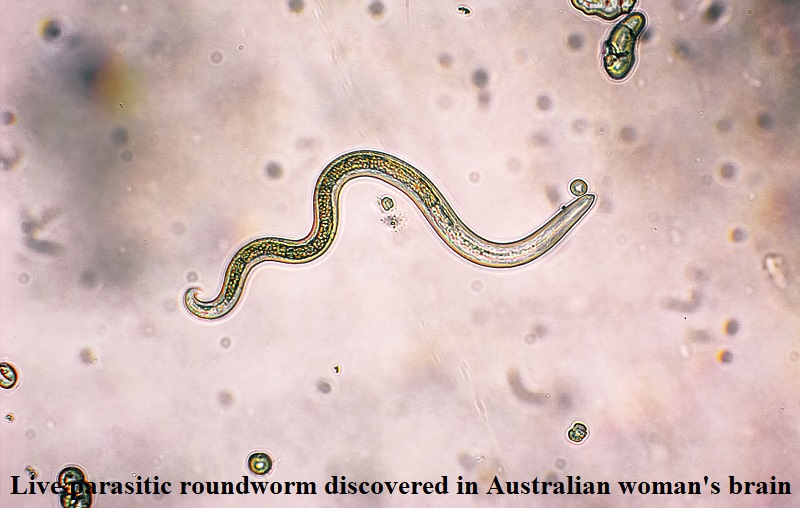
In Australia, a perplexing medical incident has left medical professionals astounded, as a 64-year-old woman was discovered to harbor a living parasitic roundworm within her brain. The astonishing aspect is that this particular worm, known as Ophidascaris robertsi, is typically associated with snakes, specifically pythons. This occurrence represents the inaugural documented instance of such a worm residing in a human host.
At Canberra Hospital, neurosurgeon Dr. Hari Priya Bandi successfully extracted an 8cm-long parasitic roundworm from her patient’s brain. The revelation prompted her to contact her colleagues and express, “Oh my God, you wouldn’t believe what I just found in this lady’s brain – and it’s alive and wriggling.”
According to The Guardian, the woman had experienced diverse symptoms since late 2021, encompassing abdominal pain, diarrhea, cough, fever, and night sweats. In 2022, she began exhibiting cognitive impairments like forgetfulness and depression.
Upon conducting an MRI scan, medical experts detected anomalies in her brain necessitating surgical intervention. It was during this procedure that neurosurgeons encountered the unprecedented 8cm-long roundworm within her brain. This type of roundworm, typically associated with pythons, had never been documented within human subjects.
The woman, residing near an area populated by carpet pythons, hosts of this worm, is believed to have come into contact with the parasite through native grasses she collected from the vicinity of a nearby lake for culinary purposes. The hypothesis suggests that a python might have excreted the parasite in its feces, subsequently contaminating the grass.
Given the novelty of the case, the medical team exercised caution, suspecting the presence of larvae within the patient. To eliminate the larvae, they administered medication that posed potential adverse effects.
According to medical professionals, the patient’s recovery has been successful. This case has been documented in the September edition of the journal Emerging Infectious Diseases.
The incident has drawn attention to the potential risks of diseases and infections transferring from animals to humans. Dr. Sanjaya Senanayake remarked that there have been “about 30 new infections in the world in the last 30 years.”
He clarified that the Ophidascaris infection does not transmit among humans, hence posing no pandemic threat akin to Covid-19 or Ebola. Nevertheless, since the snake and parasite are present in various parts of the world, it is probable that similar occurrences will emerge in other countries in the coming years.

Post Your Comments